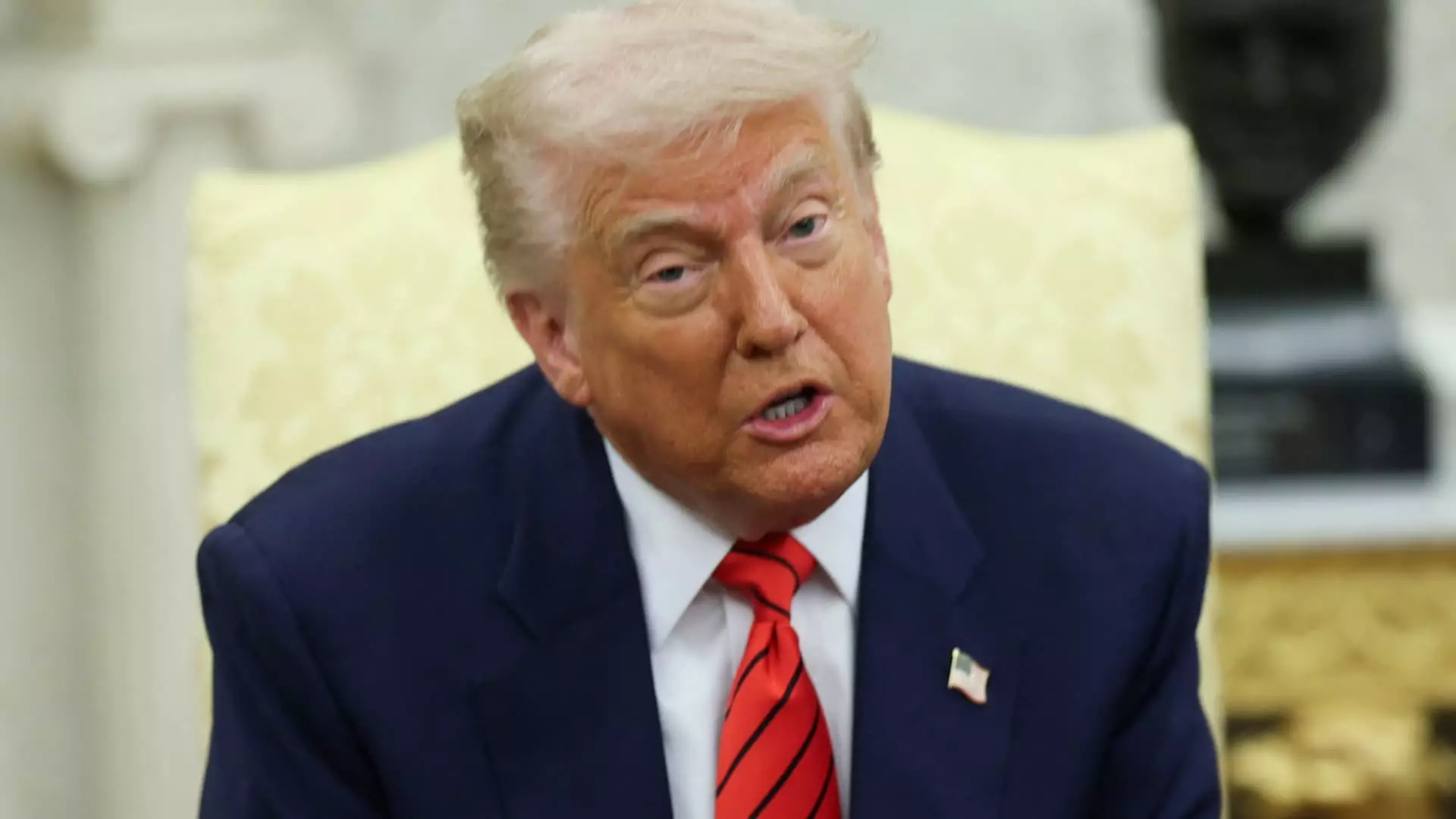In an unexpected twist during a meeting with Canadian Prime Minister Mark Carney, President Donald Trump articulated a divergence from conventional trade diplomacy that has sent ripples through financial markets and political spheres alike. His assertion that the United States does not need to “sign deals” with its trading partners challenges the long-held perception that bilateral agreements are essential for economic advancement and stability. Instead, Trump posited that the onus lies with other countries to establish terms favorable to American interests, echoing his broader America First strategy. This perspective is not just a casual remark; it highlights a growing frustration with the demands for swift trade agreements that have characterized his administration since its inception.
The Pressure Cooker of Trade Talks
For weeks, Trump’s senior officials have publicly maintained that concluding trade agreements is a top priority. Treasury Secretary Scott Bessent, in a recent media appearance, claimed that the U.S. was “very close to some deals,” adding to the suspense and anticipation among investors and business leaders. However, Trump’s latest comments have undermined this narrative, plunging the markets into uncertainty. Emerging reports indicate that behind closed doors, aides have been incentivized to create optimism about impending agreements, yet no tangible frameworks or contracts have been presented to substantiate these claims. The contradiction between assurances of fruitful negotiations and the president’s apparent indifference leaves stakeholders questioning the administration’s commitment to trade reform.
Revolutionizing America’s Trade Position
Further complicating matters, Trump suggested that any future agreements would inherently require other nations to pay a premium for access to the U.S. market, comparing it to shopping at a luxury store. In essence, he is redefining the dynamics of trade by shifting the narrative from one of reciprocal negotiations to a position of dominance. This could imply a future where American exports are couched at higher valuations and countries are incentivized to negotiate from a disadvantage. While this approach may appeal to a base that craves a robust and unapologetic national strategy, it may also encounter resistance from economic advisors who understand the complexities and interdependencies of global trade markets.
Mixed Signals for Investors and Allies
The repercussions of Trump’s statements became evident as U.S. markets dipped following his remarks. Investors, already on edge amid fears of a looming trade slowdown triggered by tariffs, responded negatively to the uncertainty surrounding potential trade agreements with major partners like Japan and South Korea. In light of these mixed signals, business leaders and analysts are in a precarious position, caught between the administration’s bold claims and the lack of actionable outcomes. The dichotomy creates an environment where confidence in the market fluctuates dramatically, reflecting the unpredictable nature of current U.S. trade policy.
Dissecting the Future of Trade Agreements
As the Trump administration navigates domestic and international pressures, the future of U.S. trade agreements remains shrouded in ambiguity. On one hand, there’s a push from within the government to stabilize economic relationships through strategic partnerships; on the other, there is a president adamant about leveraging America’s market strength to coax concessions from trading partners without committing to formal agreements. This contradiction begs the question: can the U.S. maintain its economic interests while simultaneously adopting an approach that shuns traditional diplomatic practices? Trump’s declaration illustrates an unconventional mindset that prioritizes American leverage in trade discussions over collaborative diplomacy, marking a potentially paradigm-shifting moment in global economics.
In a world where trade agreements are often viewed as vital pathways to growth, the Trump administration’s evolving narrative will inevitably spark debate among economists and political analysts alike, questioning not just the efficacy of such an approach but also its long-term implications for both the U.S. economy and its standing in global affairs. Time will tell whether this deviation from the norm serves as a defining chapter in American trade policy or a fleeting moment in a broader historical context.

